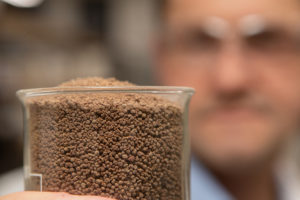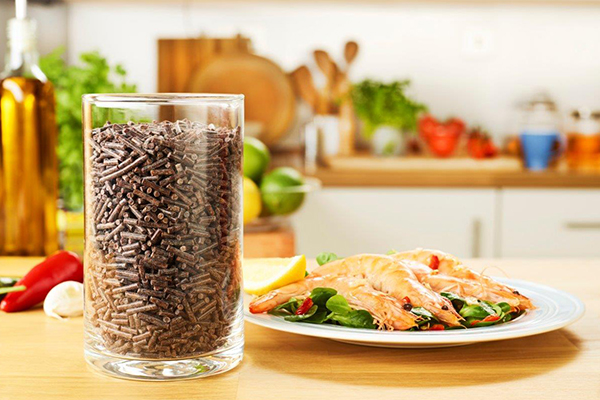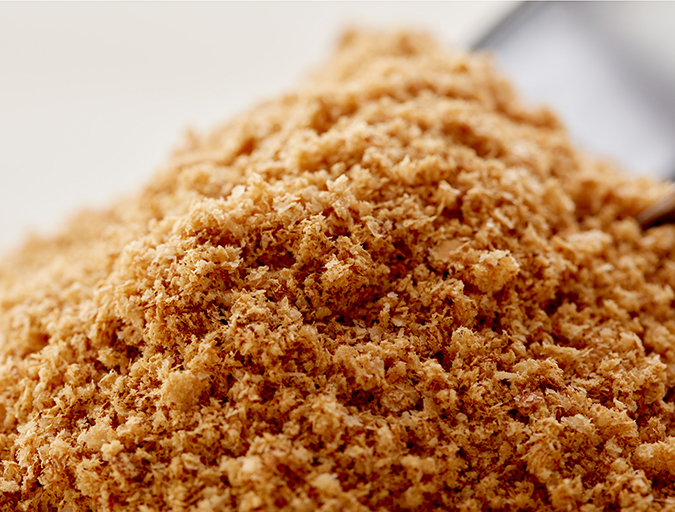
California-based Calysta’s leading product, FeedKind®, has achieved generally recognized as safe (GRAS) status with the United States Food and Drug Administration (FDA), clearing the way for its use in salmonid feeds.
The FDA’s Center for Veterinary Medicine said that FeedKind protein, officially designated as “dried fermentation biomass,” can be included in salmonid diets at up to 18 percent.
U.S. aquaculture companies now have access to a nutritionally rich and non-GMO protein ingredient that helps preserve biodiversity and addresses a growing market need for proteins.
“With so many exciting developments in US aquaculture, we are thrilled to be able to access this market. FeedKind protein is a perfect fit for the trout industry and the burgeoning recirculating aquaculture systems (RAS) industry for Atlantic salmon,'” said Allan LeBlanc, VP and aquaculture lead at Calysta. “FeedKind is an exceptional alternative to other sources of protein, and is free from heavy metals, pesticides, and microplastics, ensuring animals are only fed the nutrients they need. Because it can be produced year-round using no arable land and without using any plant or animal ingredients, it truly is a protein without limits.”
GRAS status comes after Calysta successfully switched on its first commercial-scale facility via Calysseo, its joint venture with animal feed giant Adisseo, providing 20,000 tonnes of protein for the Asian aquaculture market. Calysseo has already announced its intentions to expand its production footprint in the Kingdom of Saudi Arabia.
“US GRAS status was a key achievement for us, so we are very pleased with the official notice. This brings the US closer in line with existing approvals in other markets throughout the world, such as the EU, and enables us to expand the market opportunity for this revolutionary product. This is an important first step in our path toward US GRAS status for use in pet foods to complement our existing EU and UK approvals for pet food,” said Herman Sloot, VP-commercial development at Calysta. “GRAS status also means the world has an effective and nutritious option added to its toolbox as it comes to grips with the need to produce more food while protecting biodiversity for current and future generations. FeedKind has a far lower carbon footprint than conventional sources of animal protein and can help pet food and animal feed producers achieve their carbon reduction targets.”
Follow the Advocate on Twitter @GSA_Advocate







